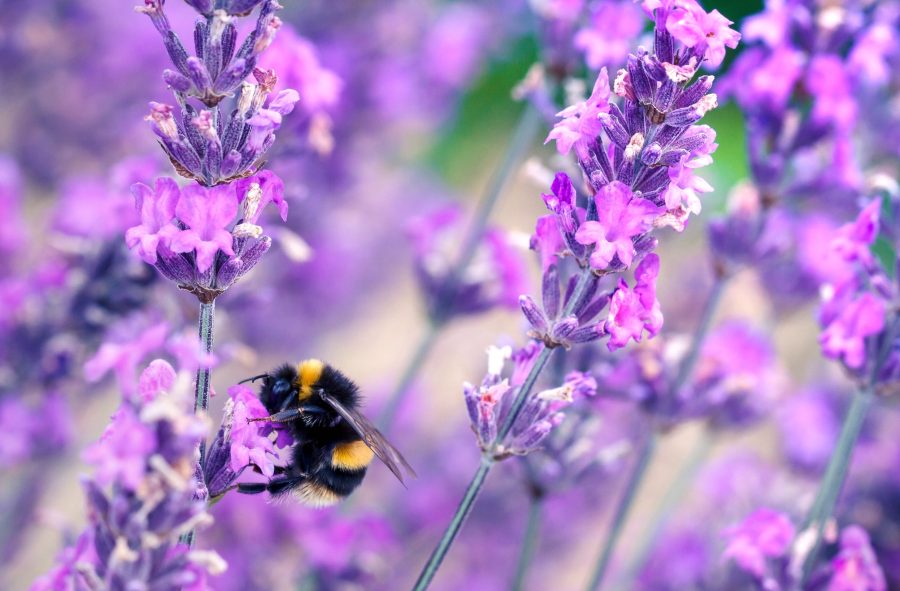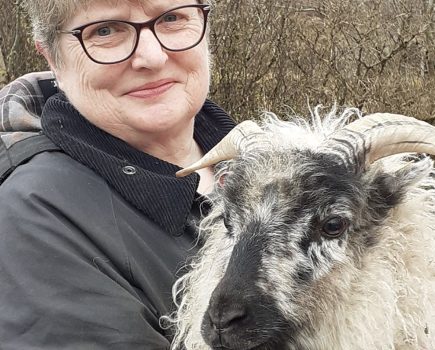Bees’ Needs Week (10 – 17 July) is underway, with a call for the public to take five simple steps to help boost bee numbers and monitor pollinators in their local green spaces.
Bees are fundamental to food production, pollinating crops and contributing more than an estimated £500 million a year to UK farming and food. They are also vital to the wider natural environment, pollinating wildflowers and trees which then support other insects, birds and mammals.
There are thousands of pollinators in the UK but they are under threat from habitat loss, invasive species, pests and disease and climate change. Bees Needs Week brings together beekeepers, community groups, academics and government calling upon everyone to take five simple steps to look after pollinators and help restore the natural world.
The actions are straightforward and every action counts, no matter how big or small. To better protect bees, everyone can:
- Grow more flowers, shrubs and trees
- Let your garden grow wild
- Cut your grass less often
- Don’t disturb insect nest and hibernation spots
- Think carefully about whether to use pesticides
Environment Minister Trudy Harrison said: “We simply wouldn’t be able to live without pollinators. These marvellous insects have a unique ability to move pollen between plants which sustains whole ecosystems and creates a resilient food supply for wildlife and people.
“Everyone can do their part – whether it’s taking part in a count, allowing your garden to grow more wild, or planting more flowers. The actions we take in Bees’ Needs Week and beyond will boost help give nature a boost and create a better future for all.”
Monitoring for insects in your garden, park or local area is a great way to help scientists understand what pollinator populations look like. As part of Bees’ Needs Week, thousands will be taking part in a Flower-Insect-Timed Count (FIT Count) which involves taking ten minutes to observe flowers and insects in good weather before sharing the information on the app. FIT Counts can be completed anywhere, wherever there is an abundance of flowers, and every observation helps improve survey records and knowledge of pollinator activity
Professor Simon Potts, Professor of Biodiversity and Ecosystem Services at the University of Reading, said: “The sad truth is that bee populations are declining due to habitat loss, harmful chemicals used in insecticides, and climate change.
“Fewer bees means flowers don’t get pollinated and it will be harder to grow fruit and veg in our gardens or allotments.
“Bees buzz about in the background so many people might think they don’t need our support, but there a lot of things we can do to make bees’ lives easier and help keep our fridges full of healthy food.”
The Pollinator Monitoring Scheme is the first scheme in the world to generate data on the abundance of bees, hoverflies and other flower-visiting insects at a national scale. It will provide information that will help us measure trends in pollinator populations and target conservation efforts.
As set out in our Environmental Improvement Plan, the government is committed to halting the decline in species abundance by 2030 and reversing this decline by 2042. We are taking robust action to reduce the decline in pollinators and support them to thrive – this includes the Environmental Land Management Schemes and the Species Survival Fund – a £25 million initiative which will restore and create nature rich landscapes for wildlife. To find out more about Bees’ Needs Week and how to get involved, visit: https://www.gov.uk/government/publications/bees-needs/bees-needs-campaign
More news like this can be found in The Country Smallholder magazine. Subscribe here.
For FREE updates from the world of smallholding, sign up for The Country Smallholder newsletter here.








